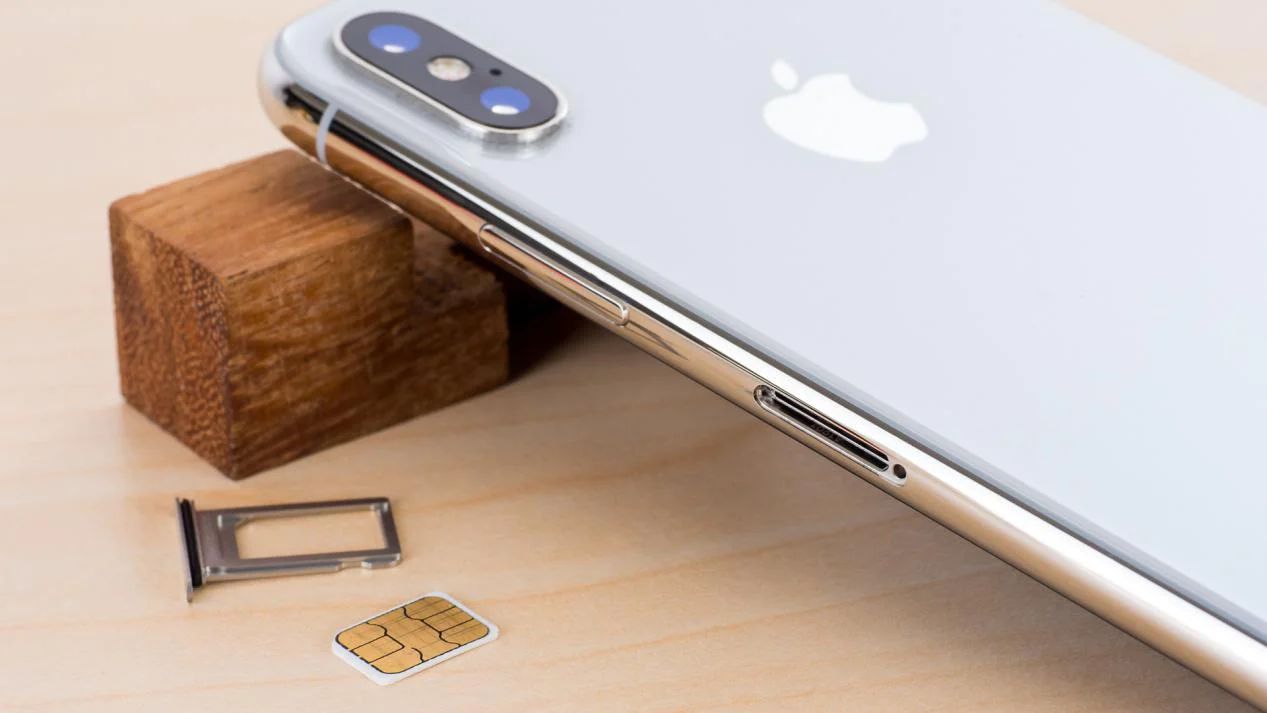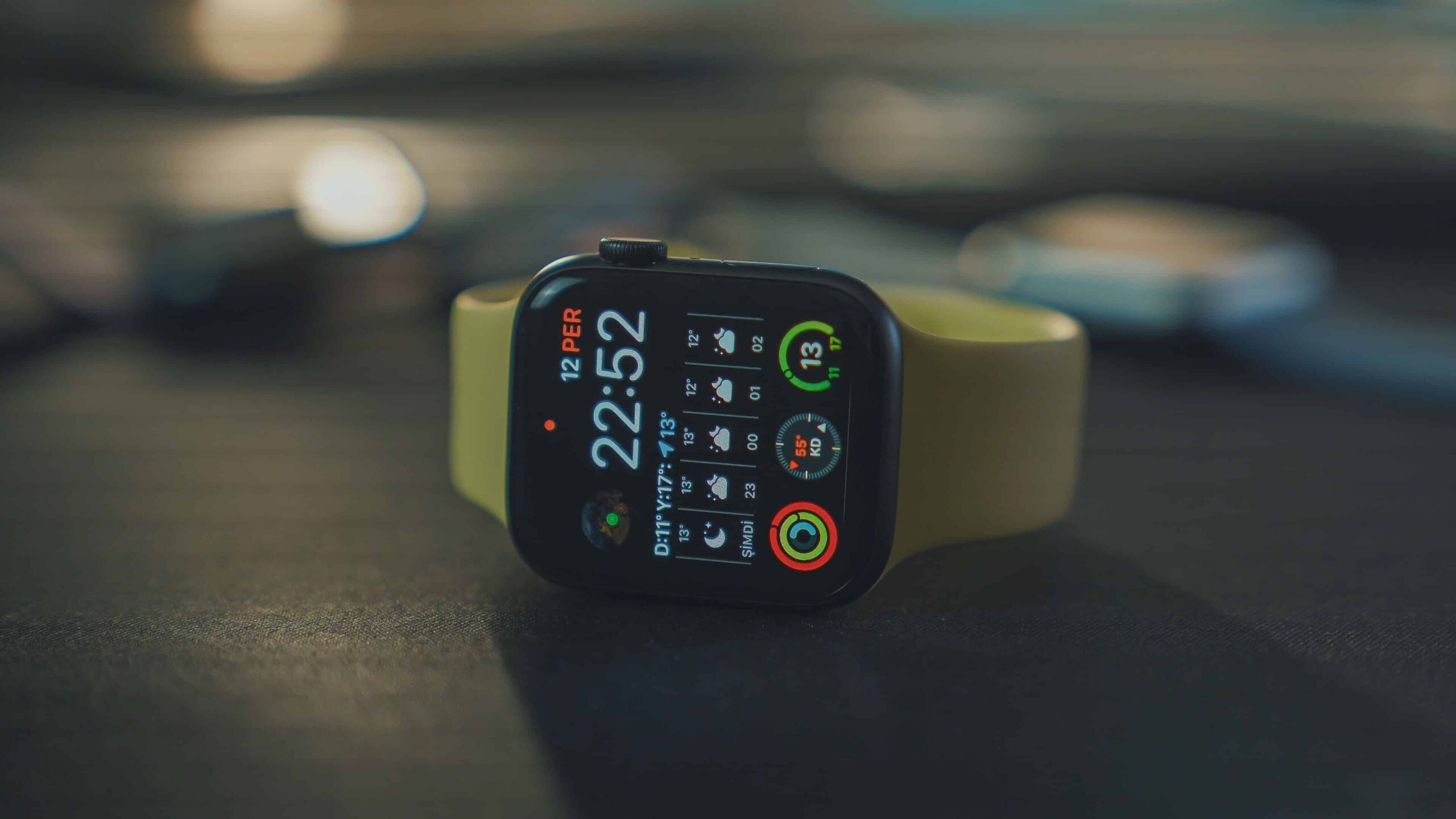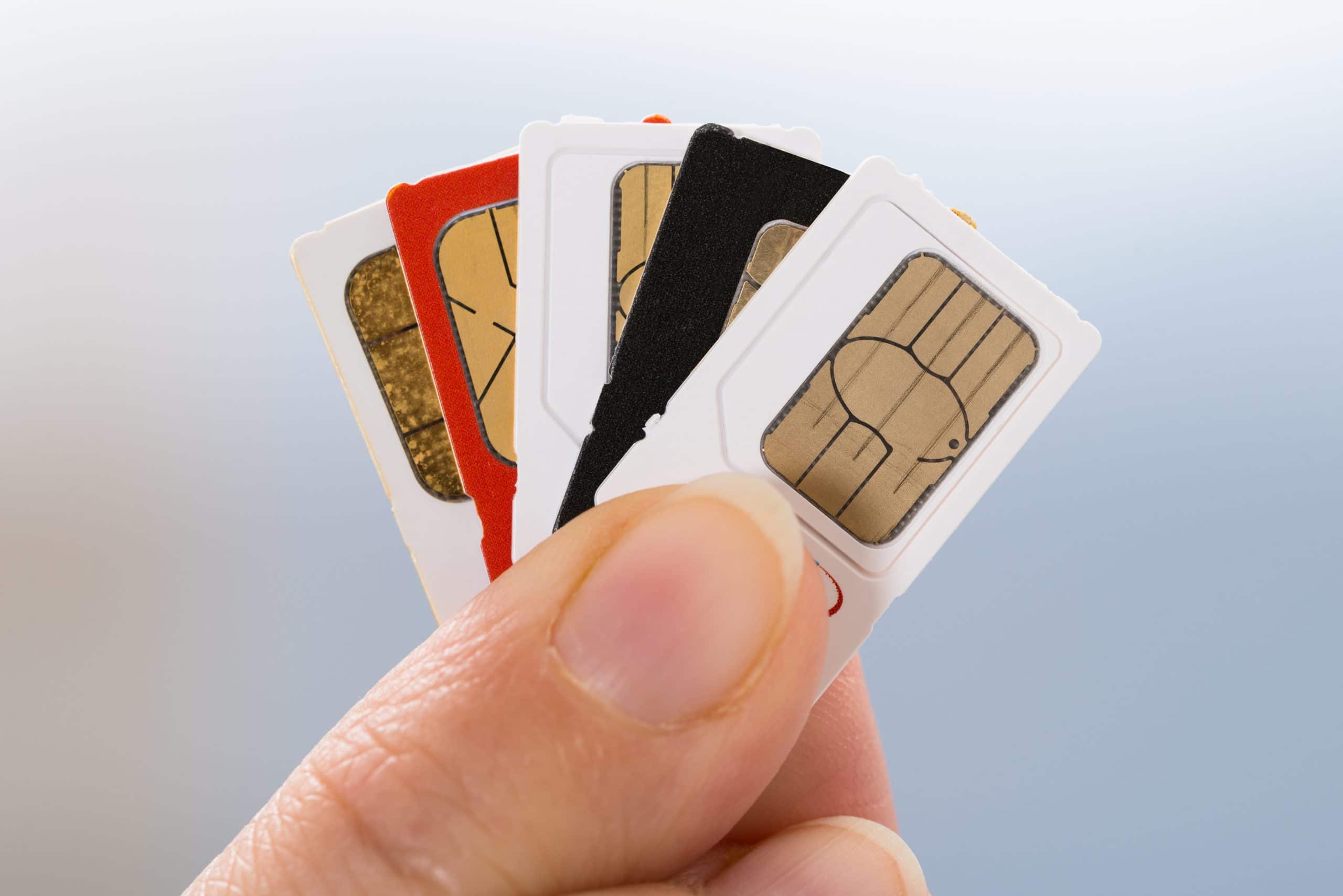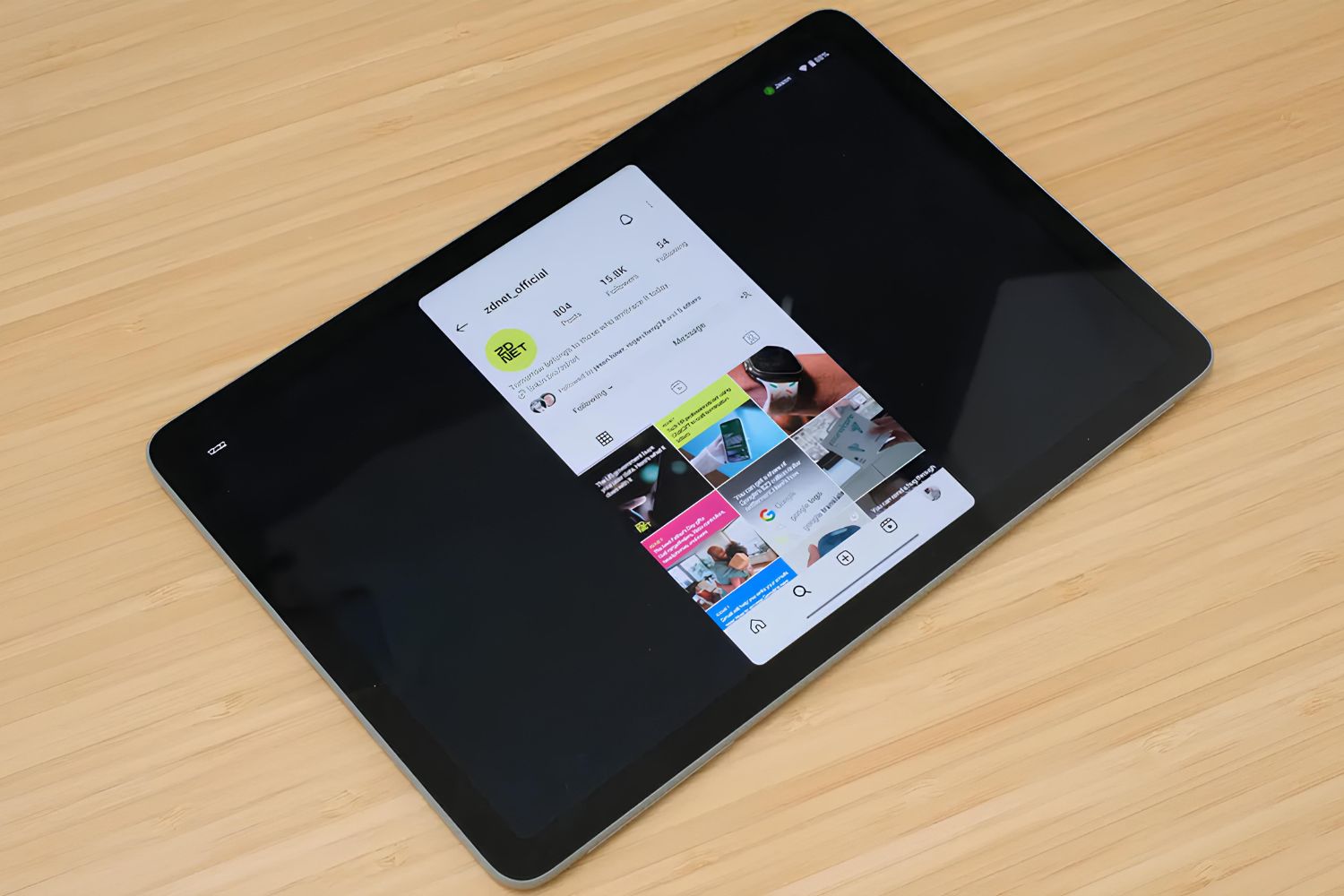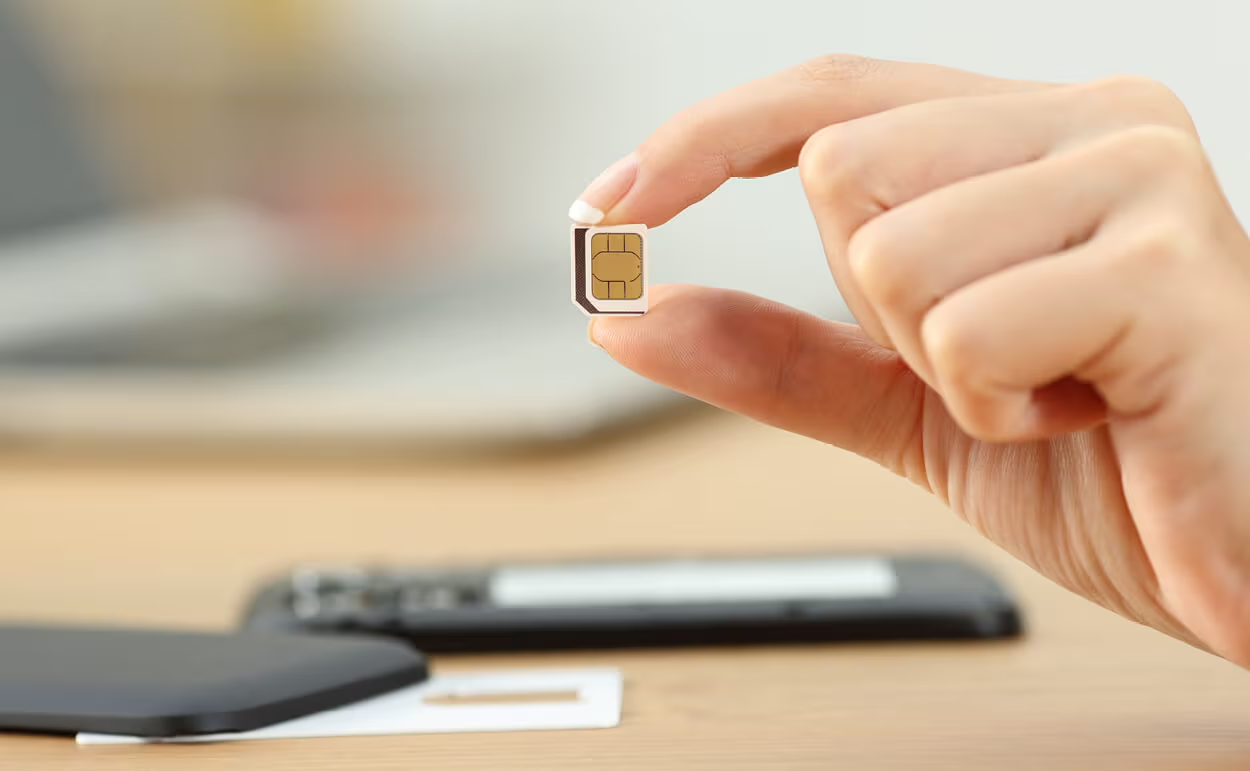Introduction
In today's digital age, mobile devices have become an indispensable part of our daily lives. From communication to navigation and from entertainment to productivity, smartphones have revolutionized the way we interact with the world around us. However, there are instances where traditional SIM card-based phone tracking may not be feasible or practical. This could be due to various reasons such as a lost or damaged SIM card, intentional SIM card removal, or the need for discreet tracking. In such scenarios, the concept of phone tracking without a SIM card comes into play.
Phone tracking without a SIM card involves utilizing alternative methods to locate and monitor a mobile device's whereabouts without relying on the presence of a SIM card. This approach opens up new possibilities for tracking devices under different circumstances, offering both advantages and challenges that are worth exploring. Whether it's for personal, professional, or security-related reasons, understanding the nuances of phone tracking without a SIM card is essential in today's dynamic technological landscape.
As we delve deeper into this topic, it's important to recognize the evolving nature of mobile device tracking and the diverse scenarios in which it can be applied. By gaining insights into the mechanisms, benefits, and limitations of phone tracking without a SIM card, individuals and organizations can make informed decisions regarding the utilization of such methods. In the sections that follow, we will explore the intricacies of phone tracking without a SIM card, shedding light on its advantages, disadvantages, and essential tips for effective implementation. This comprehensive exploration aims to equip readers with the knowledge needed to navigate the realm of mobile device tracking in a SIM card-independent context.
Understanding Phone Tracking Without a SIM Card
Phone tracking without a SIM card involves the use of alternative methods to locate and monitor a mobile device's whereabouts without relying on the presence of a SIM card. Traditionally, SIM cards have been integral to the functioning of mobile devices, serving as the unique identifier for the device and enabling communication through cellular networks. However, advancements in technology have paved the way for alternative tracking approaches that do not depend on the presence of a SIM card.
One of the primary methods used for phone tracking without a SIM card is through the utilization of GPS (Global Positioning System) technology. GPS enables precise location tracking by leveraging a network of satellites to determine the device's geographical coordinates. This method is widely employed in various applications, including navigation, fitness tracking, and, importantly, device monitoring.
In addition to GPS, Wi-Fi and Bluetooth signals can also be utilized for phone tracking without a SIM card. Wi-Fi networks and Bluetooth-enabled devices emit signals that can be detected and used to approximate the location of a mobile device. By triangulating the signals from nearby Wi-Fi routers or Bluetooth devices, it becomes possible to derive the device's position without relying on SIM card-based communication.
Furthermore, advancements in cellular network technology have led to the development of tracking solutions that leverage the unique identifiers of mobile devices, such as the IMEI (International Mobile Equipment Identity) number. IMEI-based tracking allows devices to be located even when they are not actively connected to a cellular network through a SIM card. This approach provides an additional layer of tracking capability, particularly in scenarios where traditional SIM-based tracking is not feasible.
Understanding the intricacies of phone tracking without a SIM card is essential for individuals and organizations seeking to monitor and safeguard their mobile devices. By harnessing alternative tracking methods such as GPS, Wi-Fi, Bluetooth, and IMEI-based solutions, it becomes possible to achieve comprehensive device monitoring without being constrained by SIM card dependencies. This enhanced understanding of non-SIM-based tracking mechanisms empowers users to explore new avenues for device security, location-based services, and asset tracking, thereby broadening the scope of mobile device management in diverse scenarios.
Advantages of Phone Tracking Without a SIM Card
Phone tracking without a SIM card presents several compelling advantages that make it a valuable asset in diverse scenarios. By leveraging alternative tracking methods, such as GPS, Wi-Fi, Bluetooth, and IMEI-based solutions, non-SIM-based tracking offers distinct benefits that cater to a wide range of user needs and operational requirements.
-
Enhanced Accessibility: One of the primary advantages of phone tracking without a SIM card is the enhanced accessibility it provides. Traditional SIM card-based tracking relies on the presence of an active cellular connection, which may not always be feasible. In contrast, non-SIM-based tracking methods, such as GPS and Wi-Fi signals, enable device monitoring even when the device is not actively connected to a cellular network, thus expanding the accessibility of tracking capabilities.
-
Discreet Monitoring: Non-SIM-based tracking methods allow for discreet monitoring of mobile devices, making it particularly advantageous in scenarios where covert surveillance or discreet asset tracking is necessary. By utilizing GPS, Wi-Fi, or Bluetooth signals, devices can be located without alerting the user or the need for physical access to the device, providing a valuable tool for security and asset protection applications.
-
Resilience to SIM Card Issues: Phone tracking without a SIM card offers resilience to SIM card-related issues, such as loss, damage, or intentional removal. In situations where the SIM card is unavailable or compromised, non-SIM-based tracking methods ensure that devices can still be monitored and located effectively, mitigating the impact of SIM card-related challenges on tracking operations.
-
Versatility in Device Management: Non-SIM-based tracking methods contribute to the versatility of device management by offering additional tracking capabilities beyond traditional SIM-dependent approaches. This versatility enables organizations and individuals to adapt to dynamic operational requirements, such as tracking devices in remote areas with limited cellular coverage or in scenarios where SIM card-based tracking is not viable.
-
Expanded Tracking Coverage: By combining multiple tracking methods, including GPS, Wi-Fi, Bluetooth, and IMEI-based solutions, phone tracking without a SIM card expands the coverage and accuracy of tracking capabilities. This comprehensive approach enhances the reliability of device monitoring, providing a broader scope for location-based services, asset tracking, and security applications.
Overall, the advantages of phone tracking without a SIM card underscore its significance as a versatile and resilient tracking solution that extends beyond the limitations of traditional SIM-dependent methods. By embracing alternative tracking approaches, users can harness enhanced accessibility, discreet monitoring, resilience to SIM card issues, versatility in device management, and expanded tracking coverage, thereby unlocking new possibilities for effective mobile device tracking in diverse operational contexts.
Disadvantages of Phone Tracking Without a SIM Card
While phone tracking without a SIM card offers compelling advantages, it is important to acknowledge the associated disadvantages and limitations that warrant consideration. Understanding these drawbacks is crucial for making informed decisions regarding the implementation of non-SIM-based tracking methods in diverse scenarios.
-
Reliance on Alternative Technologies: Non-SIM-based tracking methods, such as GPS, Wi-Fi, and Bluetooth signals, rely on the availability and functionality of these technologies. In scenarios where GPS signals are obstructed, Wi-Fi networks are scarce, or Bluetooth devices are not within proximity, the effectiveness of non-SIM-based tracking may be compromised. This reliance on alternative technologies introduces a degree of vulnerability that can impact the reliability of tracking operations.
-
Battery Consumption: Utilizing GPS, Wi-Fi, or Bluetooth for non-SIM-based tracking can exert additional strain on the device's battery. Continuous transmission and reception of signals for location tracking purposes may lead to accelerated battery consumption, potentially affecting the device's operational longevity. This drawback necessitates careful consideration of power management and optimization strategies to mitigate the impact on device performance.
-
Limited Tracking Precision: Unlike traditional SIM-based tracking, non-SIM-based methods may exhibit limitations in tracking precision, especially in urban environments with dense signal interference or in remote areas with limited signal coverage. Variations in signal strength and environmental factors can contribute to inaccuracies in location determination, posing challenges for achieving precise and reliable tracking outcomes.
-
Security and Privacy Concerns: Non-SIM-based tracking methods raise security and privacy considerations, particularly in relation to the interception and manipulation of GPS, Wi-Fi, or Bluetooth signals. Unauthorized access to these signals could potentially compromise the confidentiality of tracking data, leading to security vulnerabilities and privacy breaches. Safeguarding the integrity of non-SIM-based tracking mechanisms is essential for mitigating these concerns.
-
Regulatory Compliance: The utilization of non-SIM-based tracking methods may be subject to regulatory considerations and legal frameworks governing location tracking and data privacy. Compliance with applicable regulations, such as consent requirements for location monitoring and data protection mandates, is essential to ensure the lawful and ethical use of non-SIM-based tracking solutions.
By recognizing these disadvantages, individuals and organizations can adopt a balanced approach to leveraging non-SIM-based tracking methods. Addressing the challenges related to reliance on alternative technologies, battery consumption, tracking precision, security and privacy, and regulatory compliance is pivotal for optimizing the effectiveness and integrity of phone tracking without a SIM card. While these drawbacks warrant careful attention, proactive measures and strategic considerations can mitigate their impact, allowing for the prudent utilization of non-SIM-based tracking in alignment with specific operational needs and compliance obligations.
Essential Tips for Phone Tracking Without a SIM Card
-
Utilize Multiple Tracking Methods: To enhance the reliability and accuracy of phone tracking without a SIM card, it is advisable to leverage multiple tracking methods in conjunction. By combining GPS, Wi-Fi, Bluetooth, and IMEI-based solutions, you can establish a comprehensive tracking framework that mitigates the limitations of individual tracking technologies and provides robust coverage across diverse scenarios.
-
Implement Power-Efficient Tracking Strategies: Given the potential impact on battery consumption associated with non-SIM-based tracking, implementing power-efficient tracking strategies is crucial. This includes optimizing location update intervals, minimizing unnecessary signal transmissions, and leveraging low-power modes to balance tracking requirements with battery preservation, ensuring sustained device operability.
-
Enhance Signal Resilience and Accuracy: In environments where GPS, Wi-Fi, or Bluetooth signals may be obstructed or unreliable, enhancing signal resilience and accuracy is essential. This can be achieved through signal amplification technologies, signal strength analysis, and environmental mapping to identify optimal signal reception areas, thereby improving the consistency and precision of non-SIM-based tracking outcomes.
-
Prioritize Data Security and Encryption: Safeguarding the integrity of tracking data is paramount in non-SIM-based tracking scenarios. Prioritize the implementation of robust data security measures, including signal encryption, secure transmission protocols, and access controls, to mitigate the risk of unauthorized data interception and uphold the confidentiality of tracking information.
-
Stay Informed About Regulatory Compliance: Stay informed about regulatory compliance requirements pertaining to non-SIM-based tracking. This involves understanding data protection regulations, location tracking consent mandates, and industry-specific compliance standards to ensure adherence to legal and ethical considerations in the utilization of non-SIM-based tracking methods.
-
Employ Redundancy and Contingency Planning: Given the reliance on alternative tracking technologies, employing redundancy and contingency planning is essential to mitigate potential disruptions. This includes establishing backup tracking mechanisms, implementing failover protocols, and defining response procedures to address unforeseen challenges or technology-related contingencies that may impact non-SIM-based tracking operations.
-
Regularly Update Tracking Software and Firmware: Ensure that tracking software and device firmware are regularly updated to incorporate the latest enhancements, security patches, and performance optimizations. Keeping tracking systems up to date is essential for maximizing tracking reliability, addressing vulnerabilities, and capitalizing on advancements in non-SIM-based tracking technology.
By adhering to these essential tips, individuals and organizations can optimize the effectiveness, resilience, and security of phone tracking without a SIM card, enabling the seamless integration of non-SIM-based tracking methods into diverse operational contexts.
Conclusion
In conclusion, the realm of phone tracking without a SIM card encompasses a dynamic landscape of alternative tracking methods and innovative approaches that extend beyond traditional SIM-dependent tracking. The exploration of non-SIM-based tracking has illuminated a spectrum of advantages, including enhanced accessibility, discreet monitoring, resilience to SIM card issues, versatility in device management, and expanded tracking coverage. These advantages underscore the significance of non-SIM-based tracking as a versatile and resilient solution that caters to diverse user needs and operational requirements.
However, it is essential to acknowledge the associated disadvantages and limitations of non-SIM-based tracking, encompassing reliance on alternative technologies, battery consumption, limited tracking precision, security and privacy concerns, and regulatory compliance considerations. These drawbacks highlight the importance of adopting a balanced approach to leveraging non-SIM-based tracking methods, encompassing proactive measures and strategic considerations to mitigate their impact and ensure the prudent utilization of non-SIM-based tracking in alignment with specific operational needs and compliance obligations.
The essential tips for effective phone tracking without a SIM card provide actionable insights for optimizing the reliability, resilience, and security of non-SIM-based tracking. By leveraging multiple tracking methods, implementing power-efficient strategies, enhancing signal resilience and accuracy, prioritizing data security and encryption, staying informed about regulatory compliance, employing redundancy and contingency planning, and regularly updating tracking software and firmware, users can navigate the complexities of non-SIM-based tracking with confidence and efficacy.
As mobile devices continue to evolve and play an increasingly pivotal role in our personal and professional lives, the understanding and application of non-SIM-based tracking methods are poised to become integral components of device management, security, and location-based services. By embracing the opportunities presented by phone tracking without a SIM card and addressing its associated challenges, individuals and organizations can harness the full potential of non-SIM-based tracking to safeguard devices, optimize operational workflows, and unlock new dimensions of mobile device management in diverse operational contexts.
In essence, the evolution of phone tracking without a SIM card reflects the adaptability and resilience of tracking technologies, offering a compelling paradigm for navigating the complexities of device monitoring and location tracking in an ever-changing technological landscape. With a nuanced understanding of non-SIM-based tracking mechanisms and a strategic approach to their implementation, users can embark on a transformative journey that redefines the possibilities of mobile device tracking, transcending the constraints of traditional SIM-dependent methods and embracing a future of enhanced accessibility, security, and operational efficiency in the realm of mobile devices.











